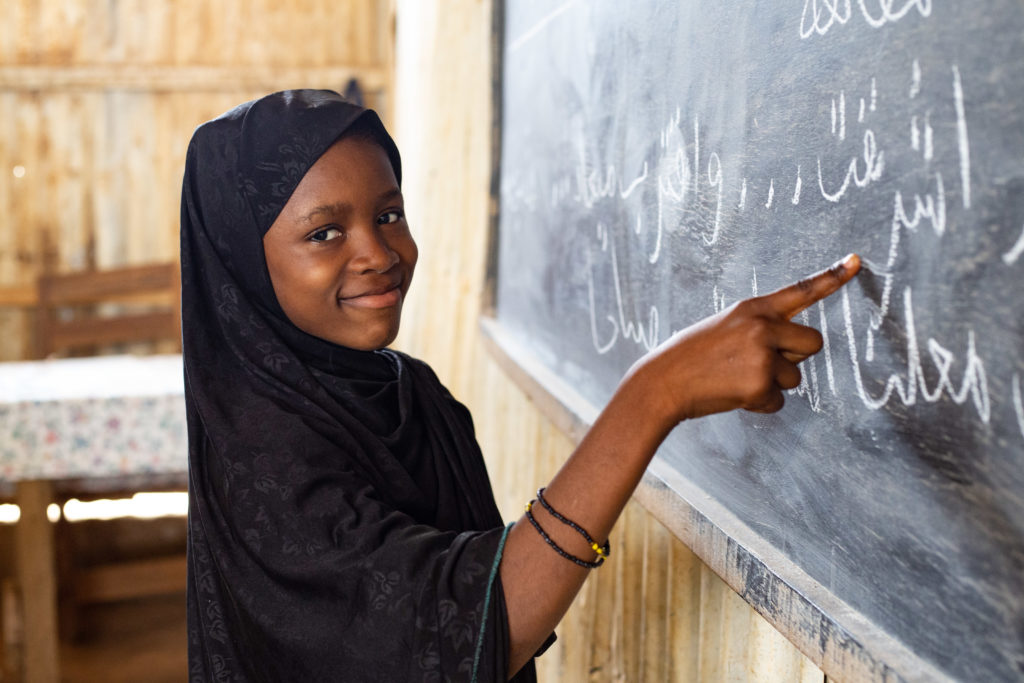Highlighting the progress of Giga activities in countries across Africa and discussing challenges and solutions toward advancing connectivity
25 March 2021
Hosted by the Government of Rwanda, Giga Lead Country, Africa
The Giga Secretariat assembled the First Giga Ministerial Roundtable to bring together country leaders and partners already involved in Giga activities in Africa, as well as leaders of countries interested in exploring a partnership with Giga.
During the Roundtable, leaders highlighted the progress of Giga activities in their respective countries, engaged in lively discussion around challenges and solutions across Giga pillars (Map, Finance, Connect, and Empower), and aligned on next steps to advance Giga’s work and collaborate on closing the digital divide in Africa.
“The young generation we are training now will be doing jobs that don’t exist yet. The knowledge economy is something big and something we need to focus on.”
“Giga comes at a crucial time when we need to accelerate connectivity. The pandemic causes socioeconomic exclusion. The health crisis has shown the importance of the Internet across nations, as people have been forced to work from home. Schools have also been closed, thereby disrupting teaching and learning.”
Through this discussion, we aim to contribute to the strengthening of cooperation and capacities around school connectivity and using schools as hubs for connectivity in each community.
“Connectivity is no longer a luxury. It is a basic necessity and a right. This is critical to the vision we want to achieve together.”
Welcoming Remarks
- H.E. Minister Paula Ingabire, Ministry of ICT and Innovation, Rwanda
- Ms. Doreen Bogdan-Martin, Director, Telecommunication Development Bureau, ITU
- Mr. Fayaz King, Deputy Executive Director, Field Results and Innovation, UNICEF
Giga Pillar Discussions
Moderators:
- H.E Minister Paula Ingabire, Ministry of ICT and Innovation, Rwanda
- Mr. Chris Fabian, Co-Lead, Giga, UNICEF
- Mr. Alex Wong, Co-Lead, Giga, ITU
Mapping and prototypes of sustainable school connectivity
Discussion Leaders:
- H.E. Minister Joseph Mucheru, Ministry of Information, Communications and Technology, Kenya
- Mr. Cédric Boubacar, Minister’s Technical Advisor, Representative of S.E.M. Ibrahima Guimba Saidou, Agence nationale pour la société de l’information, Niger
“We need to identify the linkage between knowing where schools are, the communities around those schools, understanding the challenges of connecting them — and then come up with a long-term financing model, which also includes the benefits that connectivity will bring.”
Innovative financing for connectivity
Discussion Leaders:
- H.E. Minister Dr. David Sengeh, Ministry of Basic and Senior Secondary Education, Sierra Leone
- H.E. Minister Paula Ingabire, Ministry of ICT and Innovation, Rwanda
“Financing of school connectivity needs to be long-term, durable financing, not short-term or donation-based. COVID showed us that connectivity is a long, ongoing process.”
Empowering learners and the community
Discussion Leaders:
- H.E. Minister Dr. Jenfan Muswere, Ministry of Information Communication Technology, Postal and Courier Services, Zimbabwe
- H.E. Minister N.C.G. Mathema, Ministry of Primary and Secondary Education, Zimbabwe
“We need to build more resilient education systems, relying on technology to make learning more accessible. But we also need to increase digital skills, access to hardware, and connectivity.”
“We need to look at the ecosystem — not only the learners, but their communities. It is in the Empower pillar where we unlock value for Giga, where we dream what the schools of the future will look like.”
The Ministerial Roundtable Series will support the identification of promising practices for fostering innovative funding, financing, and investment strategies, and the creation and acceleration of new and existing business models to achieve broadband connectivity and uptake across regions and continents. It also aims to increase understanding among Member States on how to design approaches to school connectivity given the particular circumstances of countries, while fully leveraging Giga’s resources and Pillars to address these challenges.

